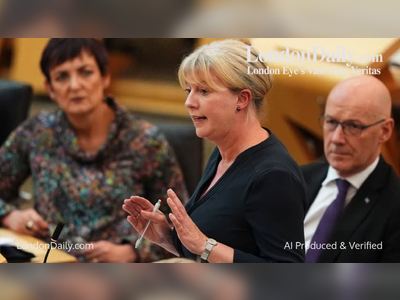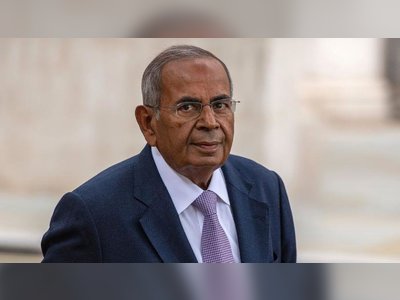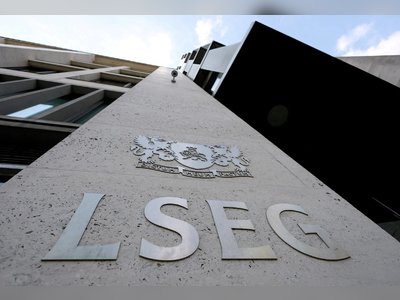
Who is Alice Weidel? An Overview of the AfD's Candidate for Chancellor of Germany.
An in-depth examination of Alice Weidel’s educational qualifications, career background, political journey, areas of policy interest, and her role as a leader in Germany’s Alternative for Germany (AfD) party.
Alice Weidel was born in western Germany to a family with established business interests and a middle-class upbringing.
She pursued a degree in economics and management at the University of Biro, receiving a scholarship from the Conrad Adenauer Foundation.
Throughout her academic journey, she conducted research in Southeast Asia and China, where she learned Mandarin and developed her doctoral thesis on China's pension system, which she successfully defended in 2011.
After completing her education, Weidel entered the finance sector, acquiring professional experience that later shaped her economic policy viewpoints.
In 2013, she became involved with the Alternative for Germany (AfD) at a time when the party was focused chiefly on economic matters, including critiques of the Euro.
Her profound knowledge of economic policy quickly led her to assume important roles within the party, culminating in her election to its executive committee in 2015. She further advanced her political career by running as a Bundestag candidate in 2017 and later becoming co-chair alongside Tino Chrupalla, a collaboration intended to represent both western and eastern perspectives of Germany.
Throughout her political journey, Weidel has centered her efforts on key issues such as economic policy, national security, migration, and reforms in education.
Her stance highlights the necessity for economic stability, secure borders, and an educational system overhaul that fits her pragmatic and dependable policy vision.
Weidel's analytical mindset and composed speaking style have been recognized by supporters and political analysts alike, enhancing her reputation as a leader adept at conveying complex policy matters in a straightforward and relatable manner.
In 2018, Weidel moved to Switzerland, where she lives with her partner, Sarah, and their two adopted children.
She keeps a distinct divide between her personal affairs and political responsibilities, asserting that her home life does not impact her policy choices.
This equilibrium between family and career has resonated with many in the AfD, and her personal story is frequently referenced in conversations about her ability to juggle multiple responsibilities.
Weidel's leadership has also been defined by her influence in shaping the strategic direction of the AfD.
As the party gears up for the 2025 federal elections, her nomination as the Chancellor candidate underscores the substantial backing she receives from various party members and supporters across Germany's diverse regions.
Her advancement within the party has been met with broad recognition of her analytical abilities, systematic approach, and effectiveness in expressing the party's viewpoints.
Media features and interviews with party supporters often emphasize her appeal to younger activists, who regard her as a role model due to her clarity and dedication to tackling both economic and social policy challenges.
In conclusion, Alice Weidel’s profile is distinguished by a combination of academic prowess, international experience, and a steady rise in political prominence within the AfD.
Her foundation in economic policy, along with her emphasis on national security and educational reforms, remains central to the political dialogue in Germany.
As the AfD moves toward the 2025 federal elections, Weidel’s extensive background and leadership skills continue to be crucial to the party’s strategy and its engagement with the larger electorate.
She pursued a degree in economics and management at the University of Biro, receiving a scholarship from the Conrad Adenauer Foundation.
Throughout her academic journey, she conducted research in Southeast Asia and China, where she learned Mandarin and developed her doctoral thesis on China's pension system, which she successfully defended in 2011.
After completing her education, Weidel entered the finance sector, acquiring professional experience that later shaped her economic policy viewpoints.
In 2013, she became involved with the Alternative for Germany (AfD) at a time when the party was focused chiefly on economic matters, including critiques of the Euro.
Her profound knowledge of economic policy quickly led her to assume important roles within the party, culminating in her election to its executive committee in 2015. She further advanced her political career by running as a Bundestag candidate in 2017 and later becoming co-chair alongside Tino Chrupalla, a collaboration intended to represent both western and eastern perspectives of Germany.
Throughout her political journey, Weidel has centered her efforts on key issues such as economic policy, national security, migration, and reforms in education.
Her stance highlights the necessity for economic stability, secure borders, and an educational system overhaul that fits her pragmatic and dependable policy vision.
Weidel's analytical mindset and composed speaking style have been recognized by supporters and political analysts alike, enhancing her reputation as a leader adept at conveying complex policy matters in a straightforward and relatable manner.
In 2018, Weidel moved to Switzerland, where she lives with her partner, Sarah, and their two adopted children.
She keeps a distinct divide between her personal affairs and political responsibilities, asserting that her home life does not impact her policy choices.
This equilibrium between family and career has resonated with many in the AfD, and her personal story is frequently referenced in conversations about her ability to juggle multiple responsibilities.
Weidel's leadership has also been defined by her influence in shaping the strategic direction of the AfD.
As the party gears up for the 2025 federal elections, her nomination as the Chancellor candidate underscores the substantial backing she receives from various party members and supporters across Germany's diverse regions.
Her advancement within the party has been met with broad recognition of her analytical abilities, systematic approach, and effectiveness in expressing the party's viewpoints.
Media features and interviews with party supporters often emphasize her appeal to younger activists, who regard her as a role model due to her clarity and dedication to tackling both economic and social policy challenges.
In conclusion, Alice Weidel’s profile is distinguished by a combination of academic prowess, international experience, and a steady rise in political prominence within the AfD.
Her foundation in economic policy, along with her emphasis on national security and educational reforms, remains central to the political dialogue in Germany.
As the AfD moves toward the 2025 federal elections, Weidel’s extensive background and leadership skills continue to be crucial to the party’s strategy and its engagement with the larger electorate.










